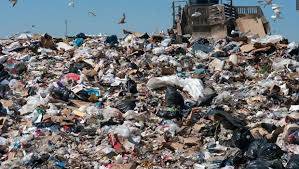Regional GEF Project Targets Pollution Risks in Mining and E-Waste Across Africa
Africa faces significant environmental challenges stemming from artisanal small-scale gold mining (ASGM) and the improper disposal of electronic waste (e-waste). These activities contribute to the release of hazardous pollutants such as mercury and unintentional persistent organic pollutants (uPOPs), posing serious health risks to communities and ecosystems. In response, the Global Environment Facility (GEF) has initiated the Africa Environmental Health and Pollution Management Project (EHPMP), a regional endeavour aimed at mitigating these pollution risks across the continent.​minamataconvention.org+4thegef.org+4thegef.org+4minamataconvention.org+5africaenvironmentalhealth.org+5thegef.org+5
Project Overview and Objectives
The EHPMP is a collaborative effort involving Ghana, Kenya, Senegal, Tanzania, and Zambia, with the World Bank serving as the implementing agency. Approved in 2020, the project focuses on reducing exposure to mercury and uPOPs in pilot sites and enhancing institutional capacity to manage and regulate mercury use in ASGM and e-waste. The overarching goal is to strengthen the institutional frameworks of participating countries to effectively address environmental health challenges associated with these pollutants. ​africaenvironmentalhealth.orgminamataconvention.org+4thegef.org+4thegef.org+4
Key Components and Strategies
-
Regional Platform for Policy Dialogue and Partnerships
A central component of the EHPMP is the establishment of a regional platform that facilitates coordination among the participating countries. This platform enables dialogue and stocktaking to advance the sound management of chemicals and hazardous waste. Regular regional meetings and workshops bring together countries, partners, and experts to address mercury use and uPOPs exposure, exchange knowledge, build capacity, and present best practices to improve policy regulations and frameworks.
-
Knowledge Management and Capacity Building
The project promotes and facilitates learning for the implementation of country programs. It supports activities disseminating and scaling up best practices from country projects and facilitates south-south cooperation. By enhancing knowledge management, the EHPMP aims to build the capacity of national institutions to effectively manage and regulate mercury use in ASGM and e-waste.
-
Program Implementation and Coordination
This component focuses on coordinating the EHPMP through stakeholder consultation at the national and regional levels. It ensures that the project aligns with national priorities and strategies, thereby enhancing its effectiveness and sustainability. By fostering collaboration among various stakeholders, the EHPMP aims to create a cohesive approach to managing environmental health risks associated with ASGM and e-waste.
Financial Commitment and Impact
The EHPMP is supported by a significant financial commitment from the GEF Trust Fund. The project has received co-financing totaling $50.6 million, with a GEF project grant of $8.72 million allocated to Ghana alone. Similar funding arrangements have been made for the other participating countries, underscoring the GEF's commitment to addressing environmental health challenges in Africa.




No comments yet
Be the first to share your thoughts!